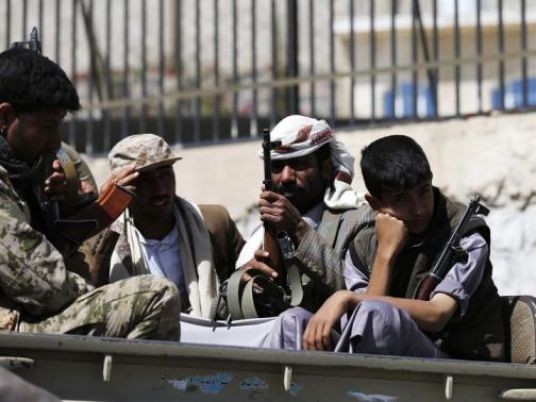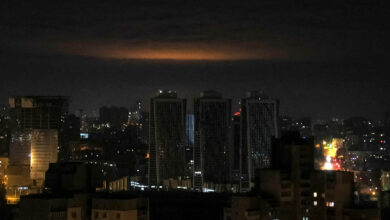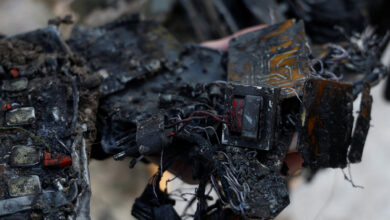
Shiite militiamen maintained a tight grip on Yemen's capital Thursday with fighters deployed around the presidential palace despite a deal to end what authorities described as an attempt to overthrow the government.
President Abdrabuh Mansur Hadi's abducted chief of staff remained in the hands of the Huthi militiamen, who overran Sanaa in September after sweeping south from their stronghold in the northern highlands.
Under a nine-point deal reached late on Wednesday, the militia pledged to withdraw from government buildings they seized this week during two days of violence that left at least 35 people dead and dozens wounded.
In return for concessions over a disputed draft constitution, they agreed to vacate the presidential palace, free top presidential aide Ahmed Awad bin Mubarak, withdraw from areas surrounding the residences of Hadi and Prime Minister Khalid Bahah, and abandon checkpoints across the capital.
The Huthis agreed with Hadi to "normalise" the situation in Sanaa, calling for people to return to work and schools to reopen.
However, by early Thursday the terms of the agreement had yet to be implemented.
"The Huthis were expected to release Mubarak by now but he has not been freed yet," a presidency official said.
Huthis were out in force across the capital and around the presidential palace, an AFP correspondent reported.
Militiamen were also deployed heavily around Hadi's residence and even extended their presence towards the intelligence headquarters, a kilometre (about half a mile) away on Sittin street in the west.
They continued to block one of the three entrances to the residence of Bahah, whose whereabouts remained unknown Thursday after the Huthis allowed him to leave following a two-day siege.
Gulf foreign ministers had on Wednesday accused the Huthis of an attempted "coup" and expressed support for Hadi.
Yemen, a key US ally in the fight against Al-Qaeda, has been wracked by instability since an uprising forced strongman Ali Abdullah Saleh from power in 2012.
Saleh has been accused of backing the Huthis.
Shops in Sanaa reopened on Thursday and people were back on the streets. But tensions remained high and Sanaa University remained shut.
"Sanaa is over," said Mohammed al-Usaimi, a 45-year-old construction worker who lives near Hadi's residence.
"There's no more security and no more work regardless of what they say about the return of life back to normal. This will not happen."
Hundreds protested outside Sanaa University calling for a "new revolt" and chanting: "No to coups!"
Wednesday's agreement granted the Shiite militia most of the demands made in a speech by their chief Abdul Malik al-Huthi on Tuesday, opening the way for an amendment to a draft constitution dividing Yemen into six federal regions, which the Huthis opposed.
The deal also gives the militiamen a greater presence in state institutions and more government posts.




